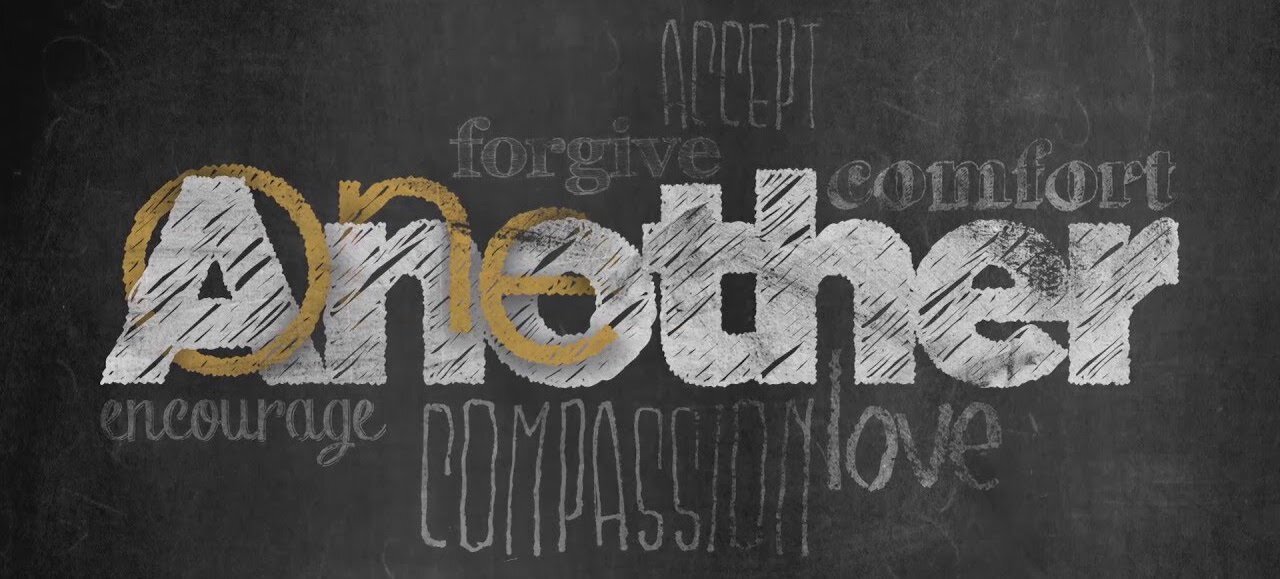Family Matters
Then Jesus’ mother and brothers came to see him. They stood outside and sent word for him to come out and talk with them. There was a crowd sitting around Jesus, and someone said, “Your mother and your brothers are outside asking for you.”
Jesus replied, “Who is my mother? Who are my brothers?” Then he looked at those around him and said, “Look, these are my mother and brothers. Anyone who does God’s will is my brother and sister and mother.” -Mark 3:31-35, NLT
The language of family permeates the New Testament. It is the primary way that the followers of Jesus saw their relationship to God (Father, Abba- Daddy) and to each other (brothers/sisters). This concept wasn’t easily integrated into the lives of the early disciples. It was often a source of disagreement, confusion and sometimes even sin. Still, it is the clear teaching of Jesus, the heritage of the believers in the book of Acts and the instruction of the New Testament epistles. We are family.
Key to the family dynamic are the ‘one another’ commands. Exactly how many of these there are is up for debate but more than 40 is conservative. The Greek word is found 100 times in the New Testament.[i] And rather than attempting to turn our attention to such a massive group of Scripture texts, it seems helpful to focus on the themes of almost 80% of them: unity, love and humility. It is interesting but not surprising that as we read the broader context of Mark 3, we find the important truth that, “If a house is divided against itself, that house cannot stand.” (verse 25) Now I know, the immediate context is to Satan’s Kingdom but, the principle is applicable to any group. Once we have division and infighting, collapse is inevitable. Not surprisingly, the antidotes to division and infighting are love, unity and humility. As we gather this WEDnesday, we will talk about how to grow in obedience to the one another commands.
A practical and helpful note needs to be made as an addendum to the message yesterday. As a part of God’s family, you are not to cut ties from your biological family. Your primary allegiance must become God’s family but, this does not mean that you are to neglect, forget or treat poorly your biological family. Jesus didn’t practice this (see John 19:25-27). If anything, our relationship to our biological family takes on new importance as we either strive to love them as brothers and sisters in Christ or seek to demonstrate love to them so that our witness for Jesus is effective in their lives.
Finally, let me share that I think that much of what ails our society today and especially the church is solved by healthy family dynamics in the church. Loneliness is pandemic in our culture. The church is seen not as a place of connection but a dispenser of content. The solution to both issues lies in the church once more claiming its heritage and living out of its family identity.
For Further Thought/Study:
From the C&MA on being an Alliance Family: https://www.cmalliance.org/video/watch/41006/
From Our Daily Bread, a devotional thought: https://odb.org/2020/02/10/in-it-together
From The Gospel Coalition on Loving One Another: https://www.thegospelcoalition.org/blogs/justin-taylor/how-to-love-one-another-affirm-share-and-serve/
For WEDnesday Discussion:
As an individual living in a very individualistic culture, what has helped you grasp the concept of being part of a spiritual family? Are there key practices that keep you from a “Jesus and me” understanding of your faith?
Here are some of the one another verses on Unity, Love and Humility[ii]:
Unity. One third of the one-another commands deal with the unity of the church.
Be at peace with one another (Mk 9:50)
Don’t grumble among one another (Jn 6:43)
Be of the same mind with one another (Ro 12:16, 15:5)
Accept one another (Ro 15:7)
Wait for one another before beginning the Eucharist (1 Co 11:33)
Don’t bite, devour, and consume one another—seriously, guys, don’t eat each other (Ga 5:15)
Don’t boastfully challenge or envy one another (Ga 5:26)
Gently, patiently tolerate one another (Ep 4:2)
Be kind, tender-hearted, and forgiving to one another (Ep 4:32)
Bear with and forgive one another (Co 3:13)
Seek good for one another, and don’t repay evil for evil (1 Th 5:15)
Don’t complain against one another (Jas 4:11, 5:9)
Confess sins to one another (Jas 5:16)
Love. One third of them instruct Christians to love one another.
Love one another (Jn 13:34, 15:12, 17; Ro 13:8; 1 Th 3:12, 4:9; 1 Pe 1:22; 1 Jn 3:11, 4:7, 11; 2 Jn 5)
Through love, serve one another (Ga 5:13)
Tolerate one another in love (Ep 4:2)
Greet one another with a kiss of love (1 Pe 5:14)
Be devoted to one another in love (Ro 12:10)
Humility. About 15% stress an attitude of humility and deference among believers.
Give preference to one another in honor (Ro 12:10)
Regard one another as more important than yourselves (Php 2:3)
Serve one another (Ga 5:13)
Wash one another’s feet (Jn 13:14)
Don’t be haughty: be of the same mind (Ro 12:16)
Be subject to one another (Ep 5:21)
Clothe yourselves in humility toward one another (1 Pe 5:5)
What are key areas of growth for you? For our church family? Are there any of these that you’ve never practiced? How will you pursue growth in these 3 key family dynamics?
[i] https://overviewbible.com/one-another-infographic/, also for the Unity, Love, Humility references/statistics
[ii] Same as above.
